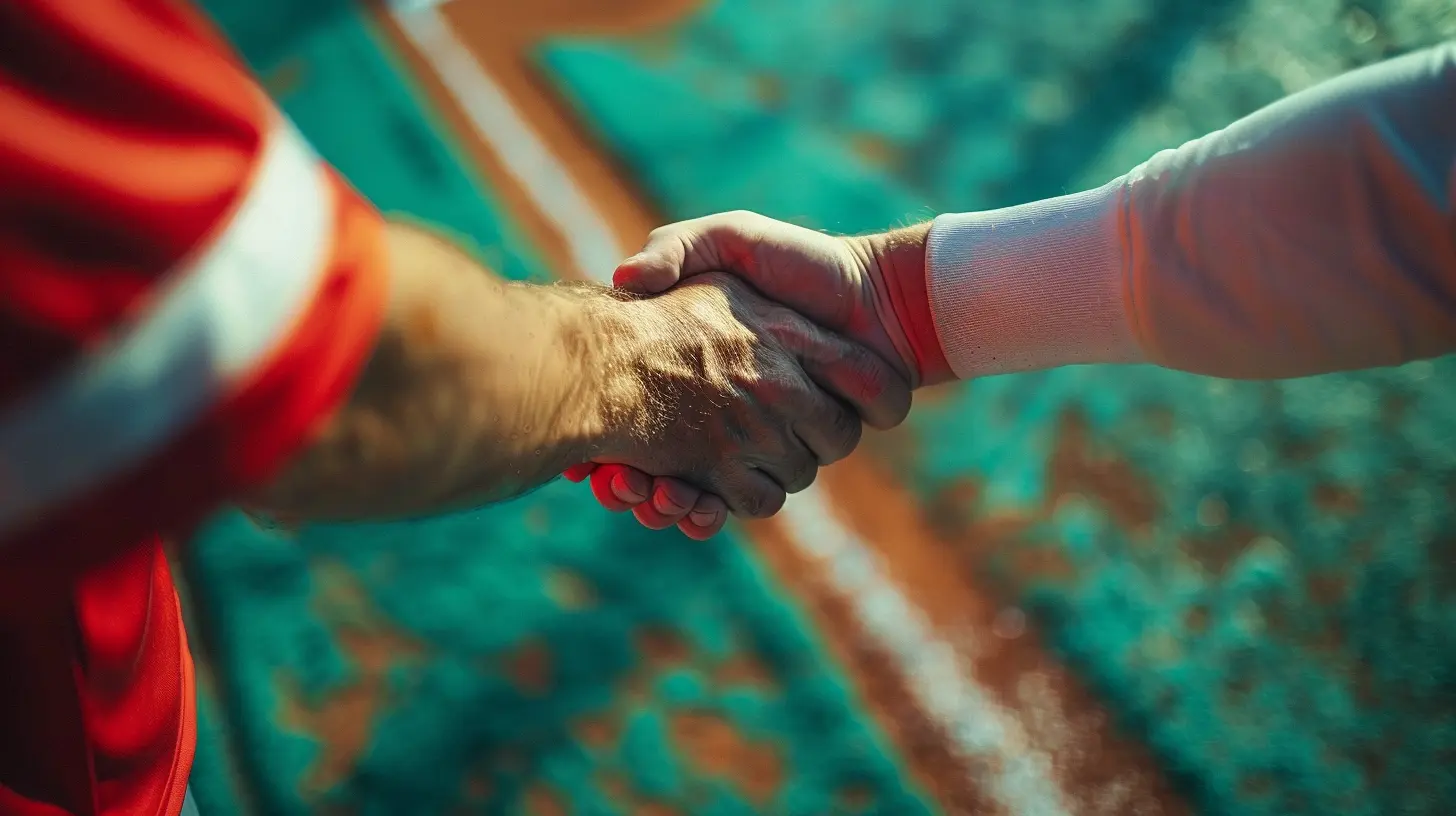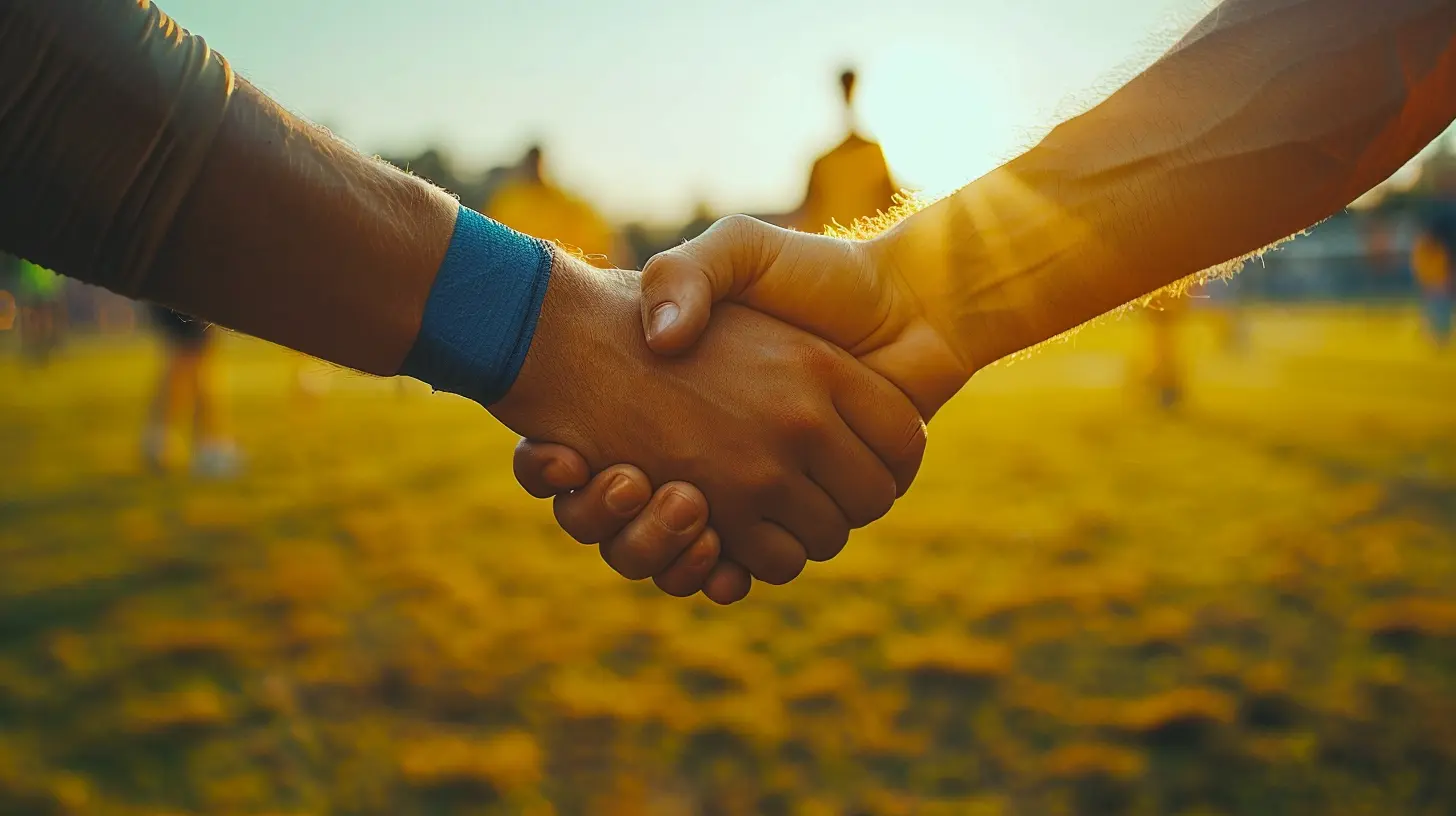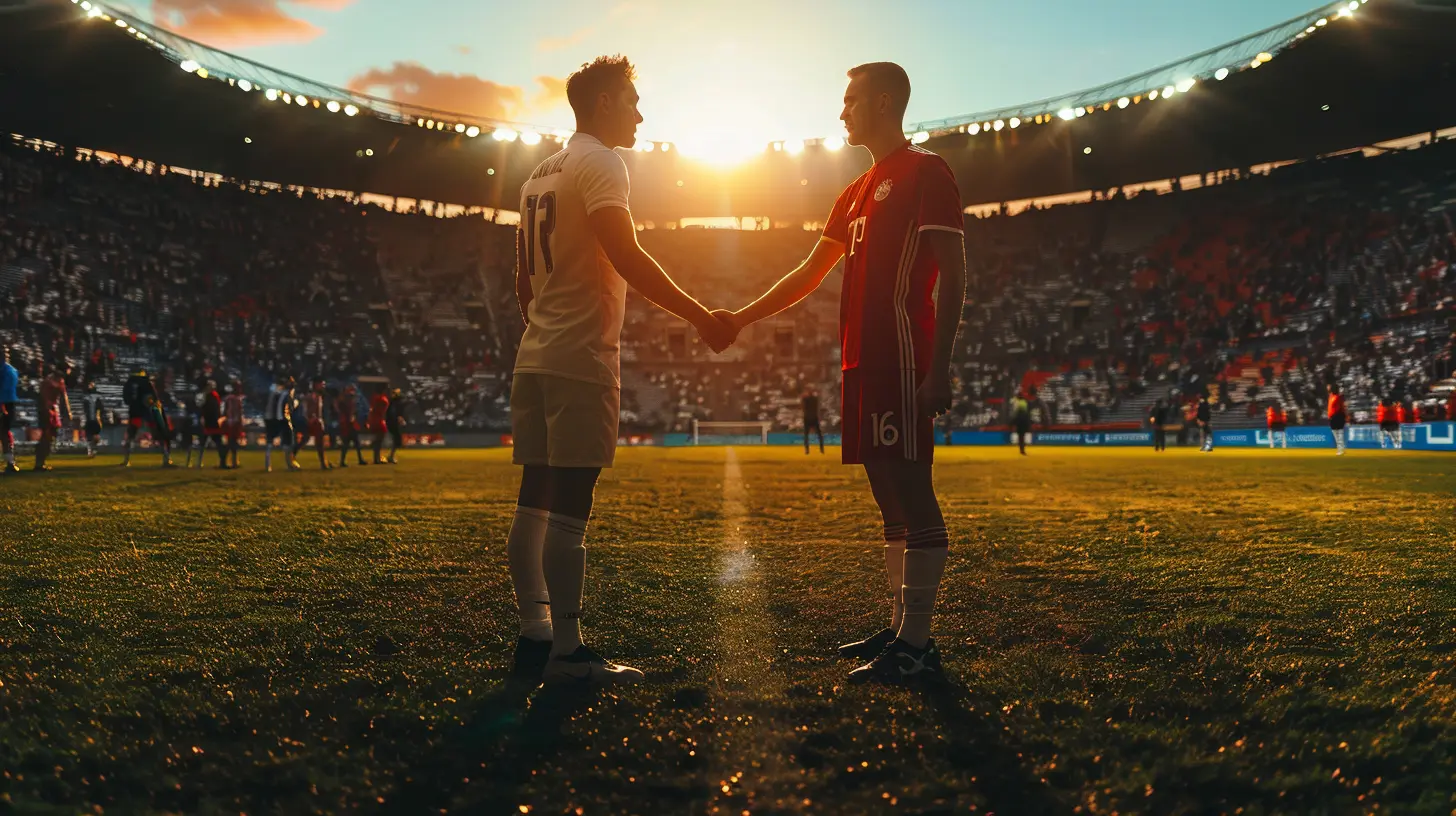How Sportsmanship Shapes Character On and Off the Field
5 July 2025
Let’s talk about something that often gets overshadowed by slam dunks, game-winning touchdowns, or that one guy who tries to slide-tackle his opponent like he's auditioning for an action movie. Yep—we’re talking about sportsmanship.
Now, before your eyes roll back and your brain whispers, “Great, another lecture about playing nice,” hold up. This ain’t one of those stiff, preachy pieces. We're diving deep (like a soccer goalie on penalty day) into how sportsmanship isn’t just about shaking hands after a game—it’s a character-building, life-shaping powerhouse with long-lasting effects beyond the scoreboard. So, grab your Gatorade, lace up those cleats, and let’s get into it.
What Even Is Sportsmanship Anyway?
Alright, let’s not overcomplicate it—sportsmanship is basically the golden rule of sports. It's playing fair, respecting opponents, being gracious in both victory and defeat, and not acting like a jerk when the ref clearly missed that call. Sound simple? It is. But putting it into practice? That’s where it gets juicy.Think of sportsmanship as the invisible jersey every athlete wears. You can’t see it, but man, does it leave a mark. Whether you're a benchwarmer or a GOAT in the making, how you treat others on the field tells the world what you’re made of.
The Character Connection: More Than Just Game Face
Sure, sports develop physical strength, agility, and the ability to sweat like a waterfall, but they also mold your character like clay. And sportsmanship is the secret ingredient—kind of like the garlic in your grandma’s spaghetti sauce. Without it, something’s just... off.🧠 Builds Mental Toughness
When you lose a game and still manage to congratulate the other team without muttering something salty under your breath? That's self-control right there. Sportsmanship trains your brain to handle adversity like a champ.You’re not just learning how to play—you’re learning how to cope, how to pick yourself up, and how to not break your racket in half when you double fault. Those are life skills, my friend.
💪 Teaches Respect (Even for That Guy Who Trash Talks)
Respect in sports isn't just about tipping your hat (unless you’re playing baseball, then yeah—literally do that). It's about understanding that everyone—yes, even the overly aggressive guy with the neon cleats—is trying their best. Sportsmanship teaches players to respect the game, the officials, the fans, and the grind that each athlete puts in.It's like learning to drive and realizing, “Hey, everyone’s trying to get somewhere without crashing.” Same with sports. Respect keeps things from devolving into chaos and WWE-style brawls.
❤️ Fosters Empathy and Team Spirit
You start realizing your teammate didn’t miss that free throw on purpose. You feel for them, encourage them, and together you move on. That’s empathy. And when you can extend that to the other team? Now we’re talking Olympic-level sportsmanship.Empathy fuels teamwork. It keeps locker rooms friendly, team chats positive (okay, mostly), and practices productive. And guess what? That kind of team player? Yeah—they’re the ones people want in the office, in friend groups, and probably at the family BBQ too.
Sportsmanship in Real Life: Off the Field and Into the World
Let’s be honest—unless you’re the next Serena Williams or Lionel Messi, you're probably not turning pro. But the character sportsmanship builds? That sticks with you longer than your high school letterman jacket.In School
Students who’ve grown up with sportsmanship usually don’t shove people to get a better seat in class. Why? Because they’ve learned patience, fairness, and how to lose without pouting. These kids often make better group project partners (they won’t take all the credit OR make you do all the work), and they understand deadlines and discipline.At Work
Imagine having to work with someone who celebrates their wins like they won the Super Bowl but blames everyone else when things go sideways. Nightmare, right?Employees with sportsmanship-driven character don't throw coworkers under the bus or take credit for someone else’s idea. They know how to lead, follow, and handle pressure without blowing a gasket. Basically, they're the MVPs every manager dreams of.
In Relationships
Ever date someone who can't admit they're wrong? Yikes. Sportsmanship teaches humility, accountability, and good ol’ conflict resolution. Whether it’s admitting you forgot date night or letting your partner win at Mario Kart (okay, maybe just once), those skills are clutch.
Iconic Moments of Sportsmanship That Deserve a Standing Ovation
Still not convinced sportsmanship is that deep? Let’s rewind to some legendary moments where athletes showed more heart than ego.1. Tennis Bros for Life – Rafael Nadal & Roger Federer
These two tennis legends have battled in some of the most epic matches in history. But what sets them apart? Their respect for each other. Win or lose, you’ll always see a handshake, a smile, and zero drama. That’s how you play hard and stay classy.2. Derek Redmond & His Dad – 1992 Olympics
Mid-race, Redmond pulled a hamstring and collapsed. Game over, right? Nope. He got up, in tears, and hobbled to the finish line—with his dad helping him the whole way. The crowd went wild, not because he won, but because his GRIT was next-level. Sportsmanship means showing up, even when it hurts.3. Softball Sisters – Sara Tucholsky & Central Washington Team
In a college softball game, Sara hit her first home run... and then tore her ACL rounding the bases. She couldn’t run. Know what the opposing team did? Carried her to home plate. That’s more than a good play—that’s good people.Teaching Sportsmanship: Not Just For Coaches
You don’t need a whistle or clipboard to preach good sportsmanship. Parents, teammates, gym teachers, or even the guy who shows up to every pickup game with mismatched socks—everyone can plant the seeds of character.✅ Praise Effort, Not Just Results
Celebrate hustle, not just points. Clap for the good pass, the solid hustle play, or the clean foul (it’s a thing). Make it clear that how you play is just as important as what the scoreboard says.✅ Highlight the Unseen Heroes
Who helped pick up equipment after practice? Who kept a positive attitude while benched? Those are the MVPs of sportsmanship.✅ Lead by Example
Whether it’s shaking hands after a brutal loss or owning up to that time you accidentally tripped someone (hey, it happens), actions always speak louder than coach-speak.The Flip Side: When Sportsmanship Goes Missing
Now, we’d be failing you if we didn’t talk about what happens when sportsmanship takes a time-out (or just ghosts completely).Tempers flare, games get ugly, and friendships crash faster than your Wi-Fi during a Zoom meeting. From youth leagues to the pros, blowing off sportsmanship can turn a fun game into a toxic mess.
And let’s not even get started on the viral videos of parents losing their minds on the sidelines. Sportsmanship isn’t just for players; it’s for everyone watching too.
Real Talk: It’s Not Always Easy
Let’s keep it 100—being gracious when your team loses because someone (definitely not you, of course) missed an easy shot? HARD. Giving a fist bump to the dude who just dunked on you? HUMBLING.But that’s where the growth happens. Character isn’t built when everything goes your way. It’s built in those gritty, awkward, sometimes painful moments when you choose the high road anyway. Sportsmanship is choosing maturity when immaturity would feel so much better in the moment.
Final Whistle: Why It All Matters
At the end of the day, sportsmanship is about respect—for the game, for others, and for yourself. Sure, you might not remember the exact stats of that one high school playoff game, but you’ll remember how it felt to be part of something bigger than yourself.And when the crowd clears, when the turf is empty, and when the scoreboard lights go out—you’ll still have the character that was shaped by every high-five, every tough loss, every small act of integrity on and off the field.
So next time you're out there, remember: being good at the game looks nice on a highlight reel. But being good to others? That’s the real legacy.
all images in this post were generated using AI tools
Category:
SportsmanshipAuthor:

Ruben McCloud
Discussion
rate this article
1 comments
Zedric Wyatt
True character develops through sportsmanship, impacting all areas of life.
July 18, 2025 at 5:02 AM

Ruben McCloud
Absolutely! Sportsmanship teaches valuable life lessons like respect, teamwork, and resilience, shaping our character beyond the game.


